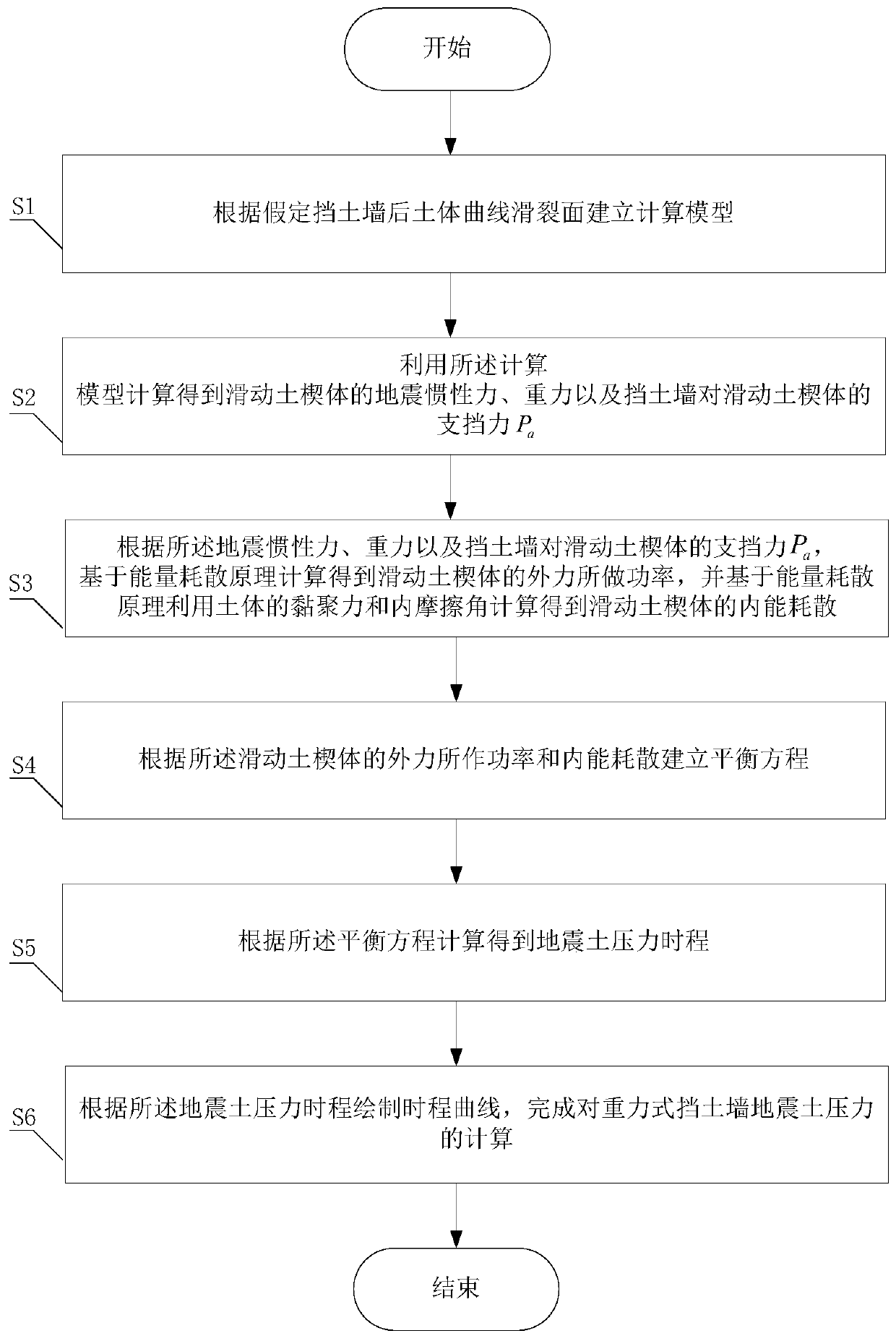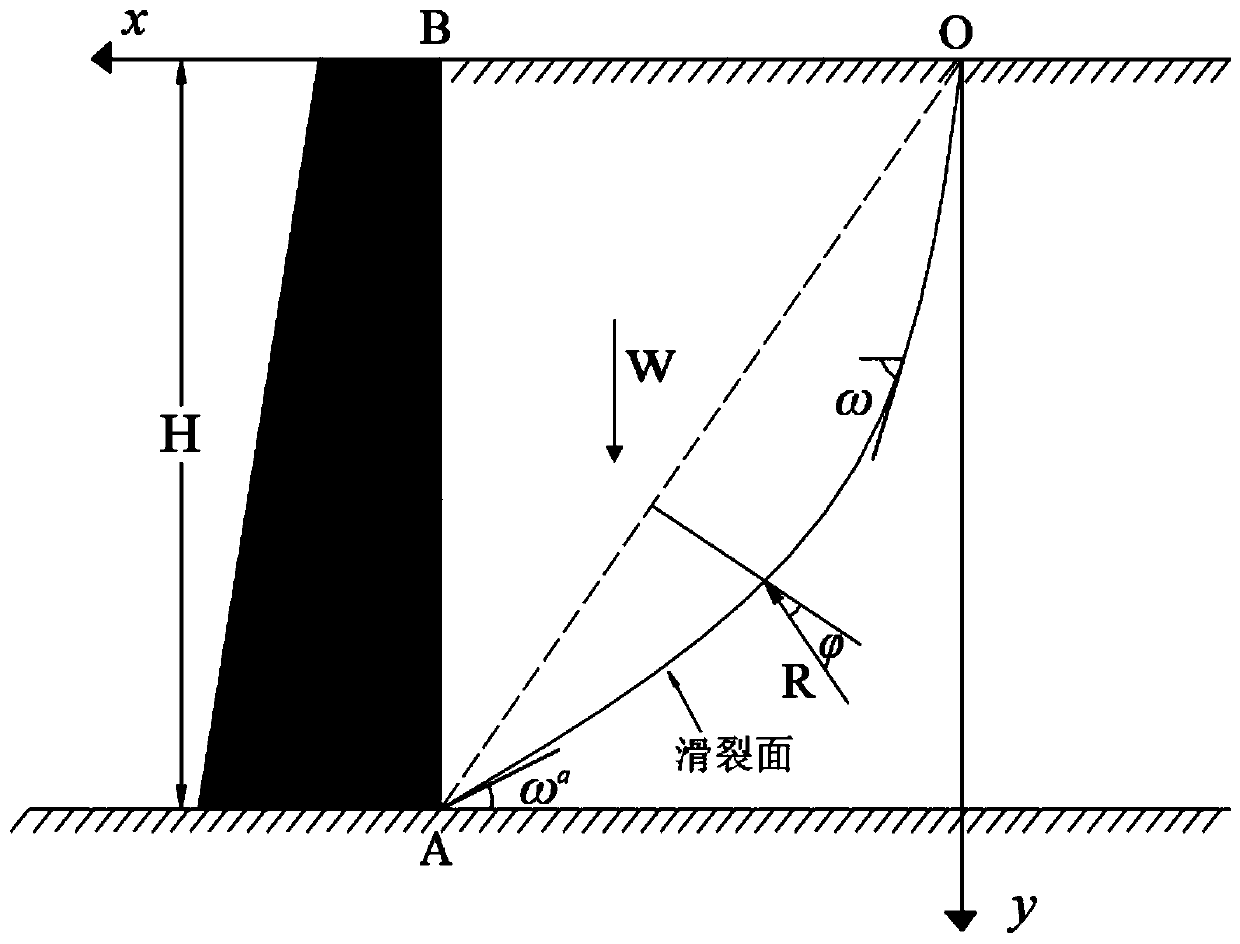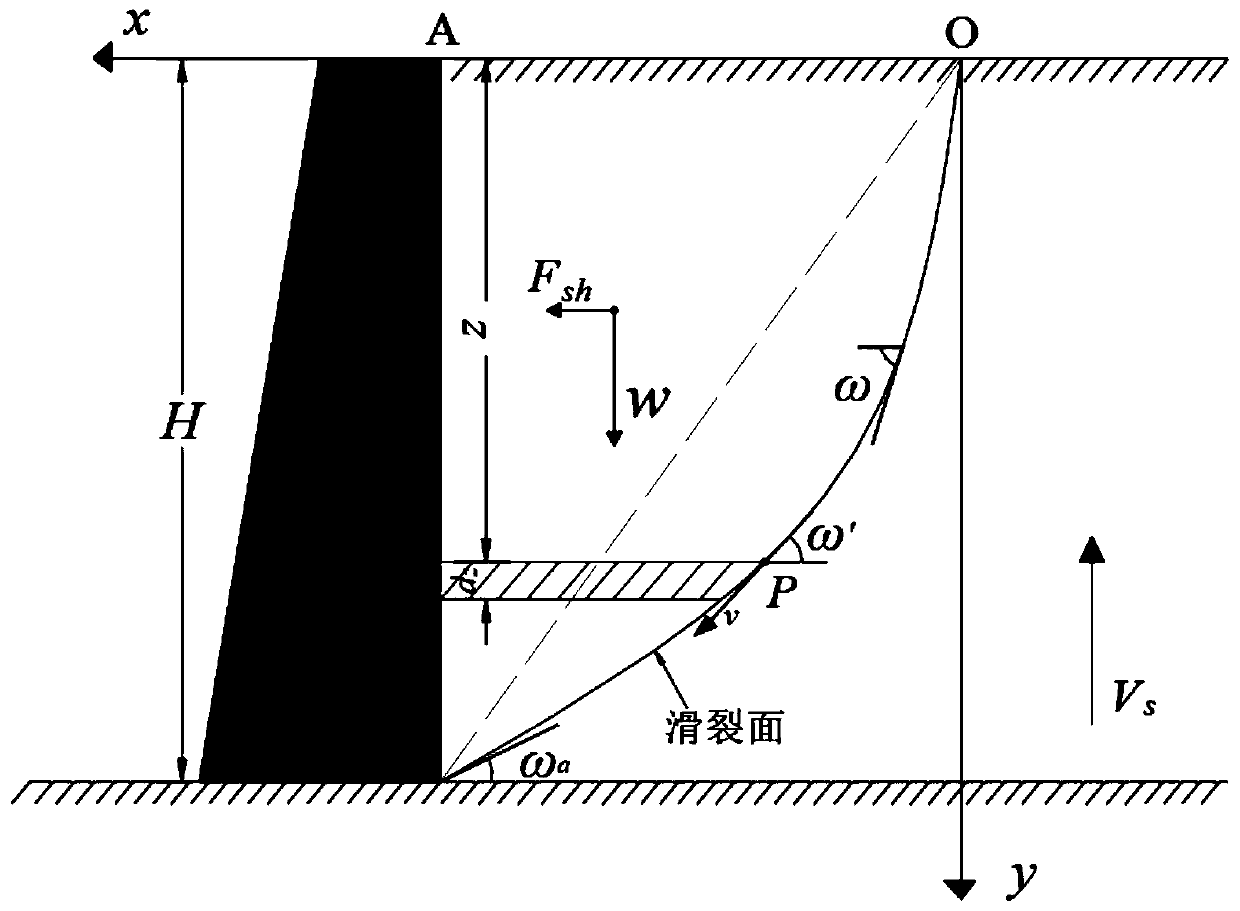Retaining wall earthquake soil pressure time history calculation method based on energy dissipation principle
A technology of energy dissipation and calculation method, applied in the direction of electrical digital data processing, instrumentation, geometric CAD, etc., can solve the problems that the seismic earth pressure cannot be obtained, and the influence of seismic wave earth pressure is not considered.
- Summary
- Abstract
- Description
- Claims
- Application Information
AI Technical Summary
Problems solved by technology
Method used
Image
Examples
Embodiment
[0064] Such as figure 1 As shown, the present invention discloses a method for calculating time history of seismic earth pressure of retaining wall based on the principle of energy dissipation, which is characterized in that it includes the following steps:
[0065] S1. Establish a calculation model based on the soil curve slip surface behind the retaining wall.
[0066] In this example, when the filling soil behind the retaining wall slides down along the back of the wall and a sliding surface in the filling soil to reach the limit equilibrium state, the sliding surface is not a straight line as proposed by Coulomb's law, but passes through the toe of the wall. curve, and assume that the surface is a cycloid. The present invention assumes that the gravity retaining wall is rigid, and the filling soil behind the wall is cohesive soil, and the specific research model is as follows figure 2 shown. Among them, W is the gravity of the sliding soil wedge, R is the reaction forc...
PUM
 Login to View More
Login to View More Abstract
Description
Claims
Application Information
 Login to View More
Login to View More - R&D
- Intellectual Property
- Life Sciences
- Materials
- Tech Scout
- Unparalleled Data Quality
- Higher Quality Content
- 60% Fewer Hallucinations
Browse by: Latest US Patents, China's latest patents, Technical Efficacy Thesaurus, Application Domain, Technology Topic, Popular Technical Reports.
© 2025 PatSnap. All rights reserved.Legal|Privacy policy|Modern Slavery Act Transparency Statement|Sitemap|About US| Contact US: help@patsnap.com



